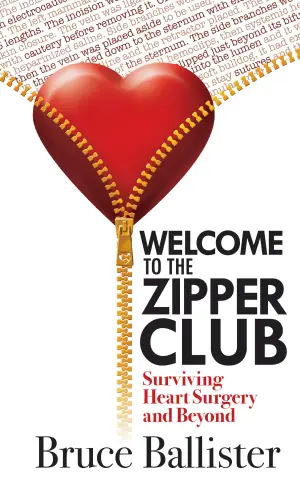Book Review: No Bad Parts: Healing Trauma and Restoring Wholeness
When my therapist recommended "No Bad Parts: Healing Trauma and Restoring Wholeness" by Richard Schwartz, I approached it with a mix of hope and apprehension. I wanted to dive into the realm of Internal Family Systems (IFS), expecting a new lens through which to understand my own life. Instead, what I found was a framework that felt more alien than enlightening, leaving me frustrated and confounded.
The premise of the book—an exploration of the idea that we all have a "True Self" surrounded by various "Parts"—is intriguing on the surface. Schwartz posits that these Parts represent different aspects of our personality, often born out of trauma, and promote healing by encouraging us to embrace them. However, I found myself grappling with the core tenets of IFS. The notion of a singular "True Self" disturbs me; can we really boil down our complex emotions and experiences into neat categories? It felt reductive, like suggesting we all exist in a monochrome palette when in reality, our lives are painted with vibrant, chaotic hues.
Structurally, the book is jarring. Schwartz often presumes to know how the reader feels or what their trauma entails, framing healing as a simple process that failed to acknowledge the nuanced realities many face. "You will feel anger; you will want to yell," he claims, but I found myself shaking my head—sometimes I just want to retreat into quiet. The blanket statements made me feel inadequate, as if my struggles with his exercises were not indicative of my individuality, but rather an inability to “connect” properly with these proclaimed Parts of myself.
Beyond the therapeutic premise, which left me feeling like I was reading a self-help manual for a cult, I was unsettled by the author’s pseudoscientific claims. Schwartz mentions that a belief in the system is paramount for its success. This notion feels deeply problematic; surely there are approaches to healing that can be beneficial regardless of belief, right? Additionally, contrasting the emphasis on healing through self-exploration with an advocacy for drugs like ketamine and MDMA as paths to the True Self felt convoluted and contradictory.
The writing itself lacks clarity and coherence. For a book centered around healing, the disorganization ultimately detracted from what Schwartz might consider a revolutionary framework. As a reader, I often felt lost in a labyrinth without a map, grappling with terms that seemed more like buzzwords than actionable concepts.
This experience prompted a deep reflection on why these ideas struck such a dissonant chord with me. Much of the language echoed my mother’s spiritual beliefs, which were often a source of pain. The underlying suggestion that understanding my true self would lead to greater empathy for all—including those deeply flawed individuals we’d rather not forgive—felt tone-deaf, especially considering the systemic issues at play.
While I recognize that "No Bad Parts" resonates with many who find solace in IFS, for me, it missed the mark entirely. If you’re someone on a journey of self-discovery who finds comfort in structured healing narratives and isn’t wary of idealizing a singular, calm self, you may connect deeply with Schwartz’s ideas. But for those of us who crave complexity, emotional authenticity, and a balance between self-acceptance and accountability, this might not be the journey you’re looking for.
In the end, reading this book has sparked important conversations for me with my therapist, as well as a desire to explore more suited therapeutic avenues. So while "No Bad Parts" may resonate with some, for me, it served as a reminder that healing is not one-size-fits-all—it’s beautifully chaotic, layered, and unique.
Discover more about No Bad Parts: Healing Trauma and Restoring Wholeness wi… on GoodReads >>






